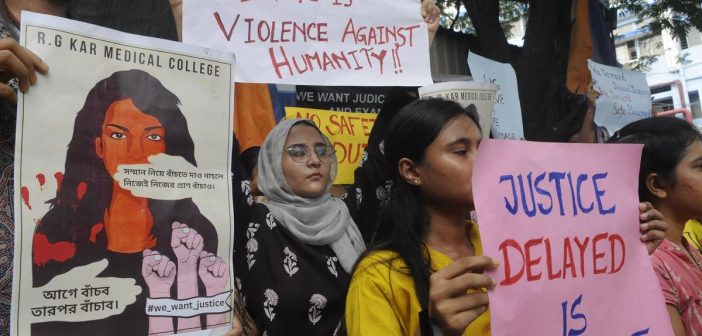The recent rape and murder of a young doctor in Kolkata has set off a political firestorm in West Bengal, putting Chief Minister Mamata Banerjee in a vulnerable position. This tragic event, followed by protests, has not only raised significant concerns about the state’s law-and-order situation but also presented an opportunity for opposition parties to challenge the Trinamool Congress (TMC) government ahead of key elections.
The Incident and Its Political Fallout
The gruesome crime, which occurred at R.G. Kar Medical College, immediately spurred protests from the medical community. Doctors across West Bengal went on strike, bringing hospital services to a standstill, and the outrage spread nationwide. Protesters demanded justice and called for better safety measures for women and healthcare workers. In response to the public outcry, the Calcutta High Court ordered the case to be handed over to the Central Bureau of Investigation (CBI), questioning the efficacy of the local police.
This handover is particularly symbolic, as Mamata Banerjee’s government had earlier curbed the CBI’s jurisdiction in West Bengal. Now, the state police’s perceived mishandling of the case has shifted the blame towards Banerjee’s administration, fueling criticisms of her governance.
Protests and Public Sentiment
Protests quickly morphed into widespread demonstrations, many of which highlighted not only the specific crime but also broader concerns about the safety of women under the current regime. Women-led marches, notably the “Reclaim the Night” movement, have drawn thousands to the streets of Kolkata, voicing frustration over the government’s inability to protect its citizens. The symbolism of such protests is particularly potent given West Bengal’s history of political violence and public dissatisfaction with the state’s handling of law-and-order issues.
In the midst of these protests, Mamata Banerjee’s government attempted to position itself on the side of justice. Banerjee herself led protest marches and demanded swift punishment for the culprits. However, her response has been criticized by many as too little, too late, with opposition parties accusing her of deflecting responsibility.
The Role of Opposition Parties
The opposition, including the Bharatiya Janata Party (BJP) and the Left, has capitalized on the political instability created by the incident. They have framed the TMC as failing to ensure basic safety and security, pushing the narrative that Banerjee’s government is corrupt and inept. With upcoming assembly elections in West Bengal, this case provides the opposition with significant ammunition to weaken TMC’s political stronghold.
The BJP, in particular, has painted the TMC as incapable of maintaining law and order, a narrative that resonates with portions of the electorate. The Left parties, similarly, have highlighted systemic failures in governance, particularly when it comes to violence against women.
Will This Incident Topple the Banerjee Government?
While the Kolkata rape-murder case has clearly eroded some of the TMC’s political capital, it remains uncertain whether this single incident will be enough to bring down Mamata Banerjee’s government. The TMC has weathered multiple crises in the past, including allegations of corruption, violent political clashes, and governance failures. Banerjee’s popularity remains strong in many parts of the state, particularly among rural voters and marginalized communities, where her welfare schemes continue to be well-received.
However, the timing of this scandal, coupled with growing public discontent and the looming assembly elections, could shift political dynamics. If opposition parties successfully leverage this incident to galvanize voters, Mamata Banerjee could face a stiffer challenge than anticipated. The protests, both from the medical community and women’s rights groups, have intensified the focus on governance failures, which could linger as election issues.
In conclusion, while it is too early to definitively say if the Kolkata rape-murder case will bring down the Mamata Banerjee government, it has undeniably weakened her position and opened the door for political opponents to press their advantage. Much will depend on how the investigation proceeds, how protests continue, and whether opposition parties can maintain momentum in turning public outrage into political change.





